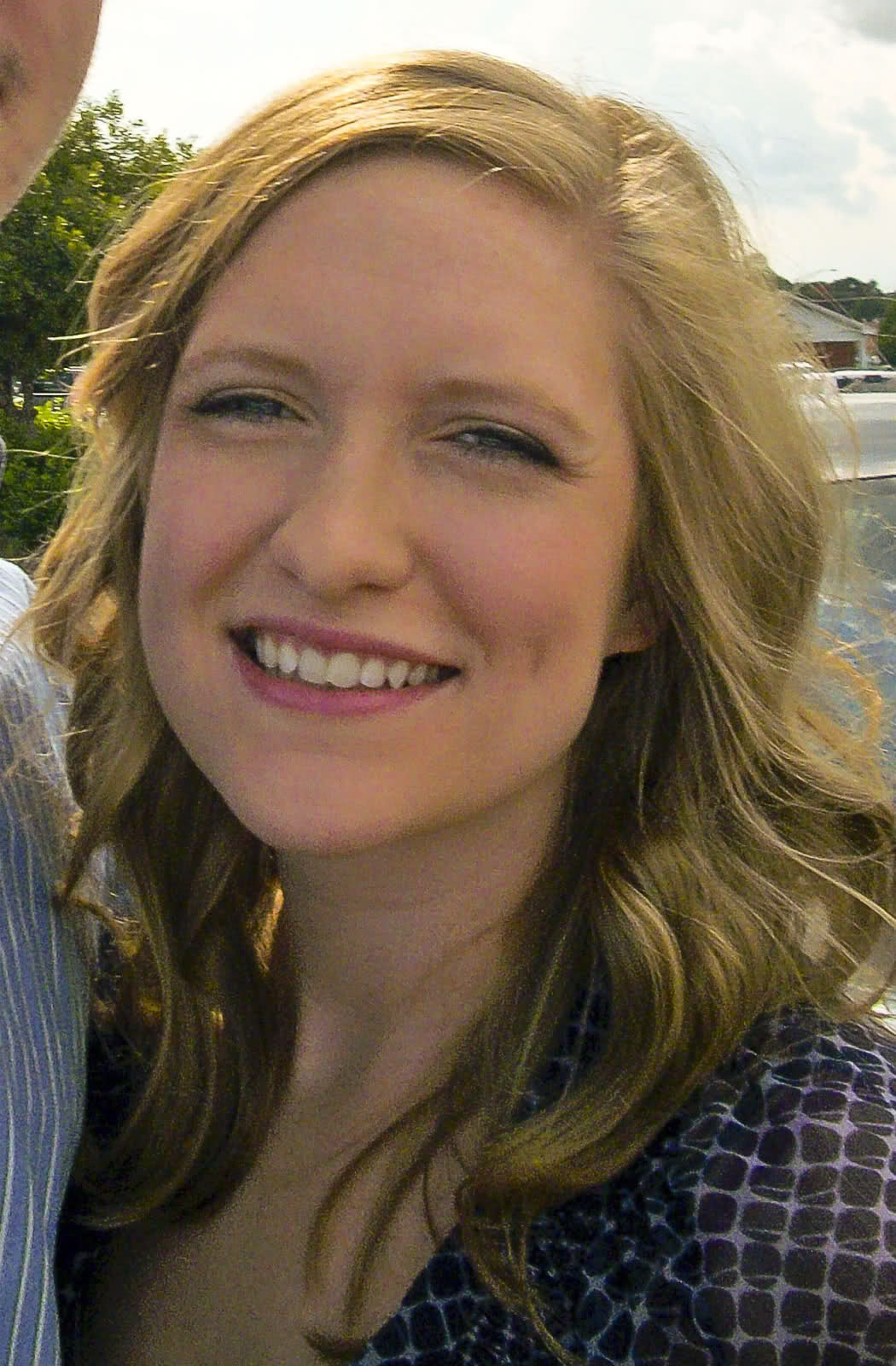
Some people can probably skip right over this post, but I really just wanted to write a little bit about job-hunting as a new SLP graduate. Why? Because I was desperately searching for advice while I was job hunting, and nothing out there really helped me. I want to share my experience and what I wish I had known.
For the record. I graduated with my Master’s degree in Speech-Language Pathology in May 2012. I have been at my current job for over a year, and it is where I completed my CFY (Clinical Fellowship Year). I work at a skilled nursing facility (SNF), so some of this will relate to that setting, but most of the information is more general in nature.
CFY SLP
A clinical fellowship for a speech language pathologist can meet landing slp cfy or slp jobs with a solid starting salary anywhere in the United States! The clinical fellowship year cfy is a great thing for speech language pathologists and those who have pursued a degree in speech language therapy. Becoming a speech language pathologist means getting the right slp cfy at the right time. This clinical fellowship experience can dovetail into a solid starting salary as a qualified speech pathologist. slp clinical fellowship is a very real and a must have experience for SLPs.
WHEN TO START
Come January of my last year of grad school I was ready to start the job search. Here’s the problem with that. Very few places are going to hire an slp five months in advance. Don’t get me wrong. There are a few people from my program that were hired very early on, but I found that looking for a job was really a poor use of my time at that point. Looking back I wish I had just relaxed and waited more patiently. I remember spending hours online applying for jobs. I was contacting people and hearing the same thing over and over again. “It’s too early, but call us back later. We will keep your name on file.”
As months passed and it got closer and closer to graduation, so many more job opportunities opened up. I was going crazy sorting through jobs come the end of March and beginning of April.
WHAT TO DO FIRST
Here is what I did do very early on that seemed to be the best use of my time. Start doing these as soon as possible.
■Write your resume. Do this as soon as possible so you can take your time and do it right. Nothing is as frustrating as seeing a job opening and not being able to apply right away because you don’t have a resume yet. I used this article from ASHA as well as a bunch of sample resumes like this one to get started. The sample resumes helped me the most, and there are tons of others. Just use search words like “slp,” “cfy,” “resume,” “example,” “sample,” “template,” or anything along those lines.
■Get your professional references lined up. I already had a good idea of who I wanted to use as my references, but you need to start thinking about it early on. Go ahead and get their permission. I used people who spent a good deal of time with me and knew me pretty well. For my list of references I found examples online like this one and modified it to fit my needs. One thing I did differently was list their professional title as well as their professional relationship to me. (ex. Professional title: Associate Professor, Professional relationship to me: Thesis Advisor)
■Get your priorities straight. Start figuring out what you want in a job. Here are some things to think about: setting, location, age group, schedule, flexibility, work environment, salary, benefits. This will be different for everyone, but I started out with a very open mind as far as setting goes. I was willing to work with kids or adults, in-patient, out-patient, whatever. I was open to working in a school, but really as a last resort. (The schools in my area actually pay SLPs relatively well compared to other schools, but not compared to other settings). I knew the level of supervision was important to me, and I wanted to have my CFY supervisor available on-site. My biggest priority was location. I wanted a job along the Gulf Coast, preferably in my home town. As you start really getting into the interview process and comparing different companies, more of your priorities will become apparent.
■Get a game plan. Here is where I think a lot of people get frustrated with the job search. They get on the computer and only type “slp JOBS” into Google. After doing that over and over again, I decided to change my tactics. I started searching for SLPs or speech therapy in the area as if I was a parent or patient looking for a place to get therapy. I went online and made a list of all the facilities in the area that employed SLPs and their contact information. Another great place to look for facilities is in the yellow pages of the phonebook under “speech-language pathology,” “speech therapy,” or “rehabilitation centers.” Honestly, I found the facility that hired me from the phonebook. You can also just look for facilities as you are driving around town. It’s amazing the places you don’t notice until you are looking for them. Make a list and keep it handy for later.
STARTING THE JOB SEARCH
speech language pathologist slp clinical fellowship info
slp cfy jobs are a fun and exciting start to your career as a speech language pathologist slp. CFY jobs are competitive but very engaging and can be done in various cities across the US. Being a clinical fellow is a very cool and fun jumpstart to your speech therapy career!
Ok, so as graduation starts getting closer and closer you can really kick the job search into high gear. Positions are going to be available, and employers are going to be looking to hire you. Here are some tips:
■You know that list of facilities you made. Call them. Who cares if they don’t have listed a job opening online. Call them and ask to speak to the therapy director. If no one answers leave a message (I hate leaving messages). It got to the point where I had this little speech I said over and over again: “Hi, my name is Haley Bee, and I am going to be graduating in May as a speech therapist. I am looking for a CFY and I was wondering if there will be any job openings at your facility.” If I had to make an estimate I heard back from about 3 out of every 5 facilities I called and about 2 out of those 3 were looking to hire someone.
■Staffing Agencies. They sure are annoying aren’t they? Don’t get me wrong, some of the people I talked to were very nice and helpful, but others gave me a bad feeling. One I talked to tried to get me to tell her all of the other companies I was in contact with. Maybe that’s normal, but I didn’t have a good feeling about it, so I lied to her and told her no one. I called a few agencies when I saw some job openings online, but by the time I got to them the jobs were never available anymore. They always had wonderful opportunities available halfway across the country. I would be extra cautious with all of these agencies because when it comes down to it, they are trying to make money by hiring you. Now here I go being a hypocrite. I was hired through a staffing agency. Here’s the difference though; most SNFs use an agency to hire therapists. I contacted the SNF first, knew that I liked it, and then was sent to the agency for that specific job.
■Just to be extra thorough, keep an eye open for job postings online. I bookmarked the ASHA career center and therapyjobs.com and checked them periodically. Here is why this is not my number one recommendation for job searching. For almost every job you apply for, you have to set up a profile and fill out a long application. And all of this, just so someone can call you to tell you the job you wanted isn’t available and to harass you about taking a job 1000 miles away. This seemed like the biggest waste of time for me. You may want to have a cover letter template ready, because a lot of the online applications required one.
INTERVIEWS
So, you found an opening, applied for a job, and heard back with good news…they want to interview you! While I was job searching I had a couple different types of interview experiences: phone interview, long drawn out direct hire interview, and SNF interview though a staffing agency. The most important thing I did for interviews was make a list of questions for employers. During each interview I looked at this list to make sure they told me everything I needed to know. Then when they asked for questions from me I was prepared. That’s what I started with, but of course I asked more questions based on what they told me. Here is my list:
1.What’s the typical caseload? (# patients, types of patients)
2.How much of the day would I spend doing therapy vs. evaluations?
3.What are the typical hours?
4.What happens if a client does not show up for their appointment? Do therapists still get paid for time?
5.Is there a productivity standard? If so, what is it?
6.What paperwork/documentation am I expected to complete on a regular basis?
7.Is there time dedicated to paperwork?
8.What technology resources are available to me here? (ex: laptop, AAC devices, iTouch, iPad, etc.)
9.What type of support will be available to me as a CFY?
10.Do you have a CFY mentor available for me? Have they had a CFY before?
11.How many other therapists work here?
12.What types of support for continuing education do you offer (Does the company pay for CEUs)?
13.What opportunities would I have to become specialized in something such as FEES, Vitalstim etc.?
14.What about license/ASHA reimbursement?
15.Therapy materials?
16.How does time off work? Do you offer paid time off?
17.If I completed my CFY here, would I be able to continue working afterward?
18.At what point in the interview process do we talk about salary? What is the salary range?
19.I don’t graduate until May. What is an estimated start date?
20.How often can a therapist expect a raise, and how much would it be?
21.Benefits package?
22.What do you feel is the biggest benefit for working for your company?
Also as you leave, be sure to ask when you should expect to hear back from them.
As for questions all the interviewers asked me, they were pretty straightforward. They didn’t ask me any hard questions (no one in any of my interviews quizzed me on speech pathology). Just the usual strengths and weaknesses questions, describe your experiences, what population do you want to work with the most? Basically I just repeated my resume to them with more detail.
■Phone Interview. I had one phone interview while I was job searching. It was for a small private practice pediatric therapy center about 2 hours from where I live. Overall the interview went well (they liked me and wanted me to come tour the facility), but I ended up stopping the process because it was too far away, and the salary and benefits just didn’t compare the the other places I was looking. They contacted me and scheduled when they would call me for the interview. I read a little bit about preparing for a phone interview online, but did not follow any advice. I mean it just seemed a little ridiculous to “dress professionally” when talking on the phone. I think I was wearing workout clothes, but I was able to turn my “professional voice” on just fine. (To be honest I make professional calls in my pajamas all the time. No one can tell.) I was super nervous that I was going to forget about the call, so I taped a giant sign in my room with “PHONE INTERVIEW @ 5:30 on THURSDAY” written on it. I had my laptop opened up to a word document so I could write down important information. I also had my giant list of interview questions for them pulled up on my computer. When they called, I was on speakerphone talking to the two owners and therapists. I have never talked on a conference call, so it was a little weird to get used to. Overall it was a great interview. I preferred the other interviews where I met people face to face and got to tour the facility right away though.
■Long, Drawn out, Direct Hire Interview. This interview was all kinds of ridiculous, but I really liked the facility and therapists. They emailed me to schedule the interview, and included a questionnaire. I thought the questionnaire was kind of redundant to my resume, but whatever. They wanted it, so I did it. I was also an over-achiever and printed out samples of evaluation reports and therapy plans I had written. They liked that, but I wouldn’t say it was necessary. The interview went well, but it was really long. Like 2 hours long. I got to meet all the therapists and they seemed like a great group of people. Again I asked my long list of questions. They told me they had a lot of other people to interview, but I should be able to hear back from them after the first round of interviews at the beginning of the next month. Next month rolled around, and I got a second interview. This one was a lunch interview with all the therapists. I dressed professionally as usual, but lunch included sitting on the floor of the therapy gym, eating barbecue, and chatting with the therapists about The Hunger Games. It was a nice time, but totally not what I was expecting. Afterward, I got to ask the therapists a bunch of questions about working there, before meeting with the owner again. I only talked with her for a few minutes, but she told me I could expect to hear back from her by the next Wednesday. Well next Wednesday rolls around, and I get a text from a friend from my program who I knew was also applying for the job asking me what I wore. She had an interview that day! I was a little confused. Later that evening I got an email from the facility telling me interviews were taking longer than expected, and I should hear back from them by the following Wednesday. Well I didn’t hear anything from them on that Wednesday either. By the time they got back to me (about a month and a half later), I had already accepted the job I have now.
■SNF Interview. I had two interviews with SNFs, but the process was similar for both. The interview was scheduled through the staffing agency. I showed up dressed professionally. Got a tour of the facility. Then we went to the therapy office and they asked me the typical questions and answered all of my questions. Easy as pie. The only thing different about SNFs is that the interviewers can’t answer questions about salary and benefits. That is all answered by the staffing agency. I left the interview and called the staffing lady to tell her I liked the facility. She contacted the therapy director and made sure they liked me. Then she called me back the same day with an offer. There is usually some time frame to accept the offer.
One of the main issues all of my classmates struggled with during interviews was negotiating salary. Salary is a big secret that no one will talk about. It’s very frustrating. Obviously I am not going to post my salary online, but it wouldn’t really mean much to you unless you were looking for a job in my same geographic area and in my same setting. I wish I could give you really great advice about this, but this is all I have.
■Talk with a few of your closest friends about what they have heard is a typical starting salary, what they are asking for, what they are expecting. Don’t put people on the spot. It makes people very uncomfortable. When classmates hear that someone else has been given a higher wage than them they start to get secretive because it really stinks to hear that someone with the exact same qualifications as you is going to get paid more than you.
■I had very specific criteria for my first job. I had to realize that it doesn’t matter that that one classmate got paid a few extra dollars an hour to take a job 4 states away. I needed a job in my hometown. You can’t compare salaries from 2 different geographic areas or even across settings. If you want to work for the school system it really stinks hearing people working in SNFs talk about salary because you will make less. Take a job that fits your needs and is what you want to do.
■You are worth more than you think you are, and more than companies will make you think you are. (This may not be true, but this is what I have gathered from my work experience.) Don’t think of yourself as less qualified just because you are a CFY. Most places really prefer a CFY. Do you know why? You are green. You can be taught to do the job exactly how they want it done. You are not set in your ways. AND you are cheaper labor than someone who has been working for 10 years. Companies want to make money and Medicare pays the same amount for therapy from a 30 year veteran slp or a newbie graduate CFY.
■To share my own experience, I had two interviews for different SNFs on the same day. I was negotiating salary back and forth, and I was open and honest about having another offer on the table. Company A offered what I thought was a good hourly rate with a sign on bonus. Company B offered me the same rate with a higher sign on bonus. Both companies had very similar benefits packages. Out of the blue, Company B contacted me and offered me $5 more an hour. It was an offer I couldn’t refuse and that was the job I currently have.
■Make sure you know if you will get a raise after completing your CFY. I think you should, but I did not. In my situation I got the higher rate, and an opportunity for a raise after 12 months instead of 9 months which was more ideal for me.
ACCEPTING A JOB
Hopefully all of this advice pays off and you will be accepting a job in no time. My biggest advice for immediately after you accept a job is to apply for your state licensure as soon as you can. It’s different in every state, but in Florida I had to have a provisional speech-language pathology license before I could start work. I waited until after I graduated to apply and that was unnecessary. I could have gotten the process started much sooner. Waiting resulted in me not starting work until the middle of June after graduating at the beginning of May. (It was actually kind of nice having time off. Consider it.) Other classmates started the day after graduation.
That’s all the job search advice I have for you! I worked very hard trying to include all of the information that would have been the most helpful to me when I was looking for a job.
-HaleyBee




